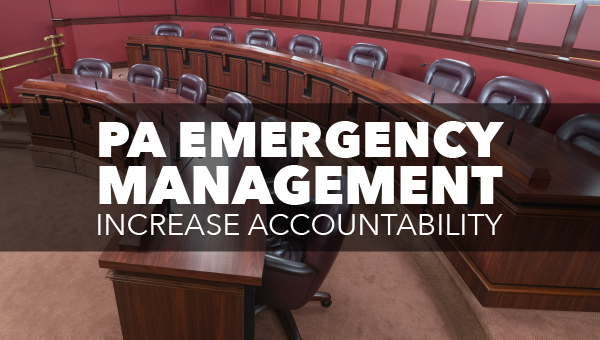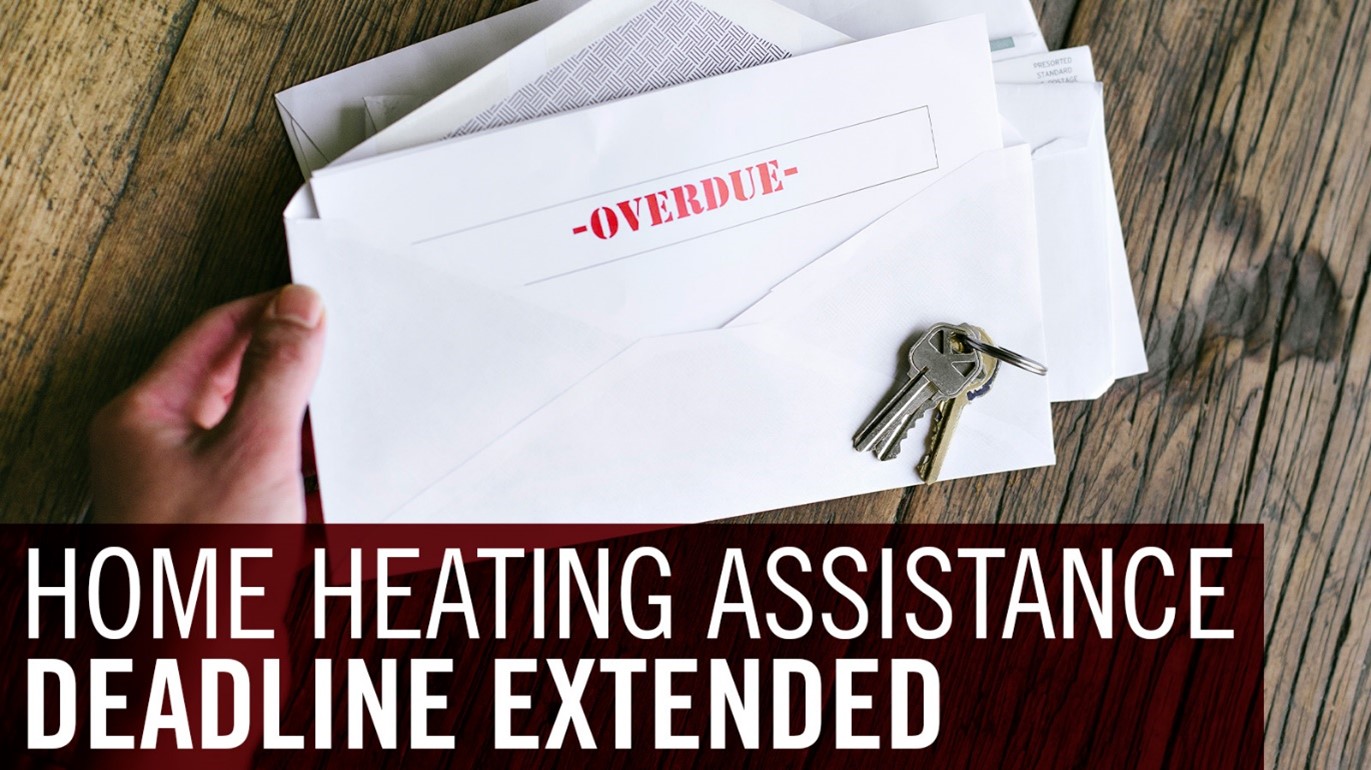|
View this email in a browser
In this Update:
- Blocking Railroad Crossings Legislation
- Increasing Accountability and Disaster Response Capability
- Senate Votes to Protect Seniors from Financial Exploitation
- Home Heating Assistance Deadline Extended
- Register to Vote by May 1
Blocking Railroad Crossings Legislation

This week, my legislation to stiffen the penalties when a company or government agency stops its trains and blocks a roadway for an unreasonable period of time, was amended and moved out of the Transportation Committee in the Senate.
Currently it is a summary offense to stop a train in a location that blocks a roadway for more than five minutes, subject to numerous exceptions, such as for safety considerations or when the train is disabled. The penalty is a $25 fine, but this has not been enough to prevent these ongoing dangerous blockages and disruption to motorists.
My legislation will increase this fine significantly, ranging from not less than $200 to no more than $1,000, and hopefully will finally get the attention of train operators to prevent these unsafe conditions and possible tragedy.
This has been a burden in our community for many years with roads being blocked for up to two hours at times along both Bellevue Ave and Woodbourne Rd. in Middletown Township. This is not only an inconvenience to local drivers and children travelling home on a school bus, but our roads need to be open for our first responders to get to their emergency scenes.
The additional funds from these fines will then be used by the Pennsylvania Emergency Management Agency to award grants to a county for equipment, training and similar expenses related to the planning, preparedness and emergency response efforts relating to railroad incidents.
Increasing Accountability and Disaster Response Capability

Legislation requiring Senate confirmation of the Pennsylvania Emergency Management Agency (PEMA) director was approved by a bipartisan Senate vote. Senate Bill 433 would increase accountability and ensure the agency is prepared to deal with emergencies efficiently and effectively.
PEMA is the lead emergency coordination agency in the commonwealth tasked with guaranteeing the safety of 13 million residents. This includes oversight of 911 centers and the Emergency Alert System, as well as hazardous materials and incidents involving five nuclear power plants.
Five state agencies with fewer employees than PEMA require Senate confirmation. The bill is before the House of Representatives for consideration.
Senate Votes to Protect Seniors from Financial Exploitation

The Senate approved a bill to help protect Pennsylvania senior citizens from financial exploitation scams using information that is already available within state government.
Under Senate Bill 137, the Pennsylvania Office of Attorney General would notify the Department of Aging about any investigations or enforcement actions involving someone age 65 or older and related to the Pennsylvania Telemarketer Registration Act.
The improved information sharing would enable the Department of Aging to deliver warnings to local area agencies on aging in counties across the commonwealth while ensuring strict adherence to confidentiality rules.
Senate Bill 137 now heads to the House of Representatives for consideration.
Home Heating Assistance Deadline Extended

The Department of Human Services (DHS) announced this week that the Low-Income Home Energy Assistance Program (LIHEAP) season has been extended from April 28 to May 12
If you need help with your heating bills from this winter you can still apply for assistance at www.compass.state.pa.us, on-site at the County Assistance Office (CAO), or call 1-877-395-8930.
LIHEAP is a federally-funded program administered by DHS that provides assistance for home heating bills so low-income Pennsylvanians can stay warm and safe in their homes. The program offers LIHEAP cash grants to help reduce a household’s monthly heating bill and LIHEAP crisis grants to help with heating emergencies; assistance is available for renters and homeowners.
More information on LIHEAP can be found here.
For helpful tips on saving money on utility costs, visit https://www.energy.gov/energysaver/energy-saver.
Register to Vote by May 1

The deadline to register to vote in Pennsylvania’s May 16 primary election is Monday, May 1. Your county election board must receive your application for a mail-in or absentee ballot by Tuesday, May 9.
To legally register, individuals must be a citizen of the United States, reside in their local voting precincts at least 30 days prior to the election and be at least age 18 on Election Day, Tuesday, May 16. Once registered to vote, you are not required to register again unless you change your residence, name or political party affiliation.
Voter registration forms, mail-in ballot applications and absentee ballot applications are available here or from your local county’s Board of Elections. You can also use the site to check your registration status.

If you are not already subscribed to this newsletter please sign up here.
|









